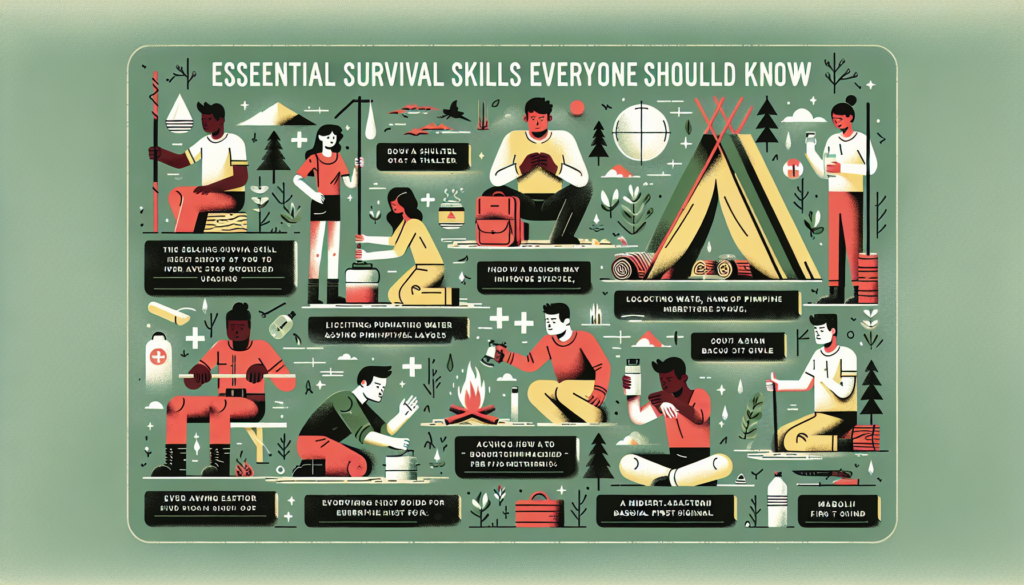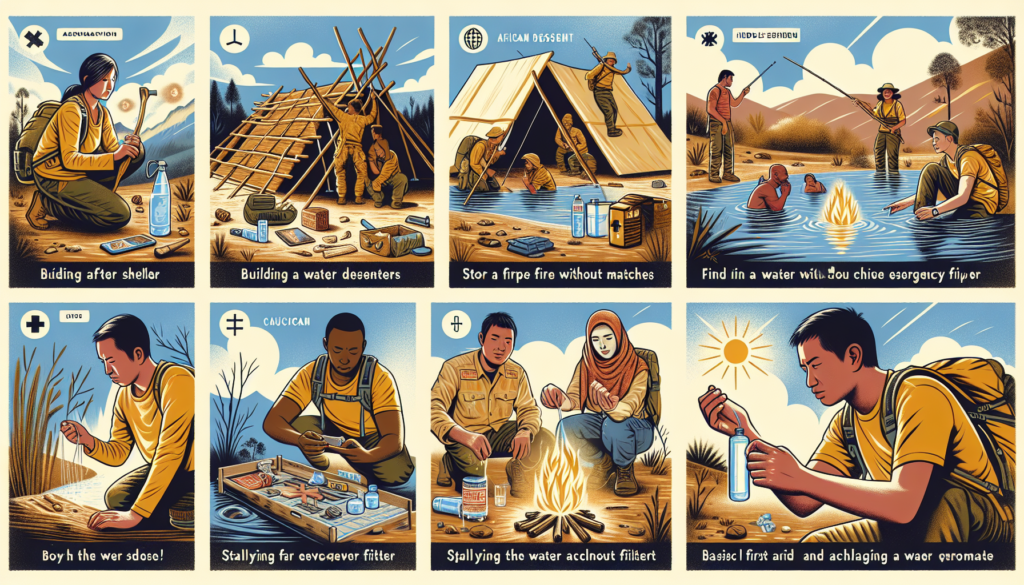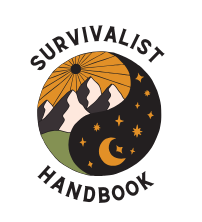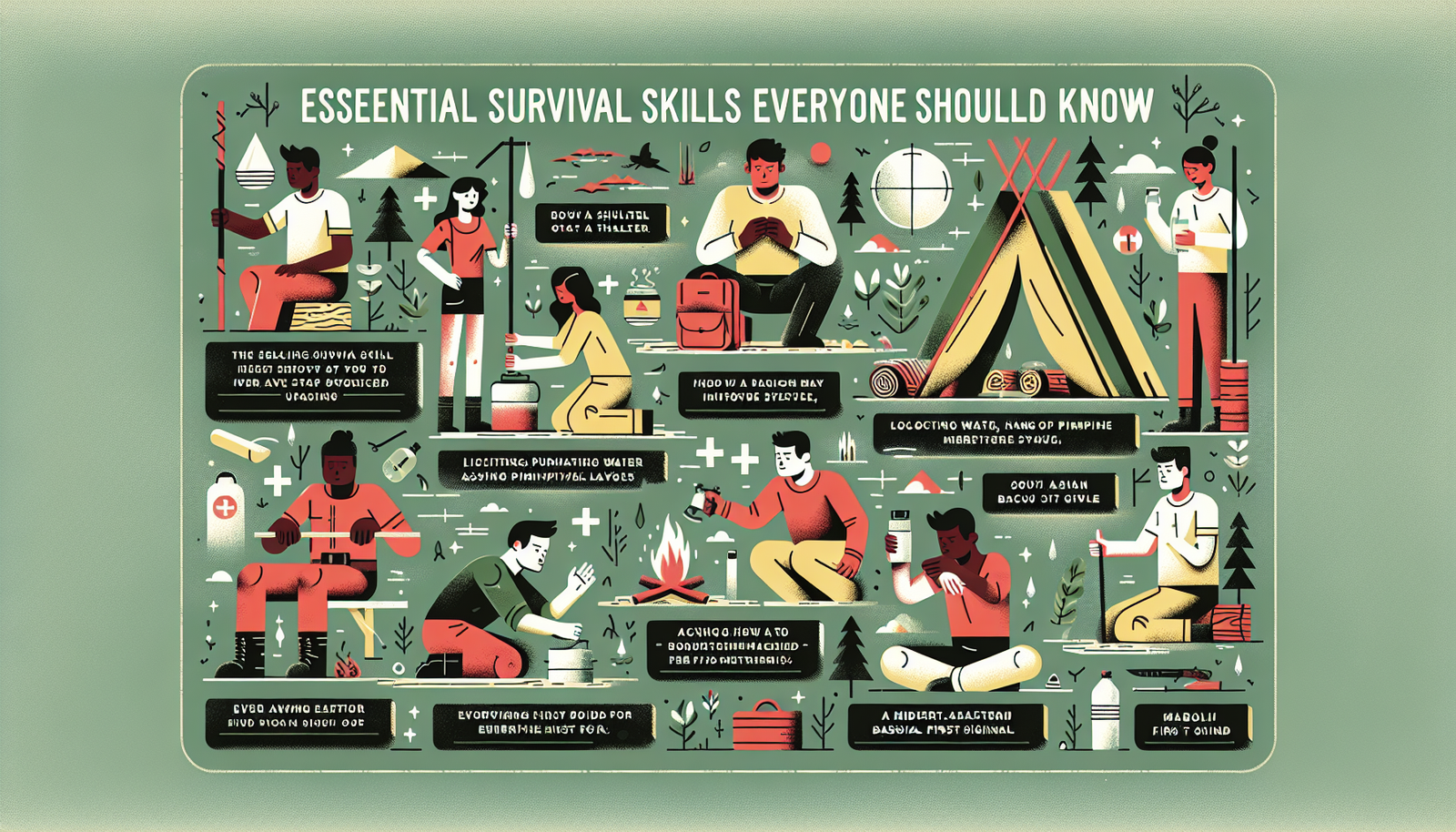Discover the fascinating world of emergency survival skills in our comprehensive guide. Whether you’re a novice or an experienced adventurer, our ‘Basic Survival Skills’ section offers a wealth of essential techniques and tips to ensure you’re equipped for any situation. From mastering outdoor survival basics to acquiring wilderness survival skills, our resources cover it all. Whether you’re interested in primitive survival techniques or need a comprehensive ‘Survival Skills Checklist’, we’ve got you covered. Get ready to delve into the world of emergency survival skills and enhance your preparedness.
Emergency Survival Skills
Welcome to our ‘Basic Survival Skills’ section, where beginners and seasoned adventurers alike can discover essential survival techniques and tips. Our comprehensive guide covers a wide range of topics, from ‘Outdoor Survival Basics’ to ‘Wilderness Survival Skills’, ensuring you’re prepared for any situation. Whether you’re looking to learn primitive survival skills or seeking an extensive ‘Survival Skills Checklist‘, our resources are designed to equip you with the necessary knowledge.
Survival situations can happen unexpectedly, whether you’re on a hiking trip, camping adventure, or faced with a natural disaster. It’s crucial to have a basic understanding of emergency survival skills to ensure your safety and well-being. In this article, we will explore various aspects of survival techniques to help you navigate through challenging situations with confidence.
Finding and Purifying Water
Water is essential for survival. In any emergency situation, your first priority should be finding a source of clean water. Knowing how to locate and purify water can make a significant difference in your chances of survival. When searching for water, keep an eye out for natural sources such as rivers, streams, lakes, and springs. If these options are not available, you can also collect rainwater or melt snow or ice.
Once you have found a water source, it is essential to purify it to eliminate harmful bacteria and parasites that could cause illness. There are several methods you can use to purify water, including boiling, using water purification tablets or filters, and utilizing natural purification methods such as sunlight and charcoal filtration.

Building Shelter
In a survival situation, having adequate shelter is crucial for protection against the elements and maintaining body temperature. When stranded in the wilderness, it is essential to understand how to build shelters using available resources. Look for natural features like caves or fallen trees that can provide some form of shelter.
If natural options are not available, you can construct a shelter using materials such as branches, leaves, and debris. Learn various shelter-building techniques, such as lean-tos, debris huts, and tarp shelters, to ensure you can adapt to different terrain and weather conditions.
Starting a Fire
Fire is not only essential for keeping warm but also for cooking food, boiling water, providing light, and signaling for help. Knowing how to start a fire is a vital survival skill. Begin by collecting tinder, such as dry leaves, small twigs, or shredded bark. Then gather kindling, which consists of slightly larger sticks, and finally, gather fuel, which includes larger pieces of wood.
Use different fire-starting methods like friction-based techniques, such as the bow drill or hand drill, or modern methods like using matches or lighters. Practice fire-starting techniques in various weather conditions to ensure you have the skills and confidence to start a fire when needed.

Finding Food
When facing a survival situation that extends for an extended period, finding food becomes essential to sustain yourself. Knowing how to identify edible plants, insects, and small game can greatly increase your chances of survival. Research and familiarize yourself with the edible plants and wildlife in the area you may find yourself in.
If you’re unsure about the safety of a particular plant or insect, it’s best to err on the side of caution and refrain from consuming it. Remember, water is more critical to survival than food, so prioritize finding and purifying water before attempting to find food.
First Aid
Having basic first aid knowledge can potentially save lives in a survival situation. Accidents, injuries, and illnesses can arise unexpectedly, so being equipped with essential first aid skills is crucial. Learn how to clean and dress wounds, set broken bones, perform CPR, and treat common ailments like burns, sprains, and insect bites.
Having a well-stocked first aid kit is also essential. Include items such as bandages, antiseptic wipes, pain relievers, tweezers, and emergency medical supplies. Regularly check and replenish your first aid kit to ensure it’s up-to-date and ready for use.
Navigating with a Compass
When lost or disoriented in the wilderness, having the ability to navigate using a compass is a valuable skill. A compass can help you determine direction and guide you back to safety. Learn how to read a compass and understand the basic principles of navigation, such as reading maps and using landmarks.
Take time to practice using a compass in various terrains and environments to build your confidence and proficiency. Remember to carry a compass and map with you whenever you embark on outdoor adventures.
Signaling for Help
In a survival situation, timely rescue can be the difference between life and death. Knowing how to signal for help increases your chances of being found by search and rescue teams. Some common signaling methods include using smoke signals, mirrors, whistles, and flares.
Learn different signaling techniques and carry signaling devices with you, such as a whistle or a signaling mirror. If possible, try to attract attention by creating a visible signal or marking your location with rocks, branches, or a brightly colored piece of cloth.
Creating Tools and Weapons
The ability to create tools and weapons using natural resources can significantly enhance your chances of survival. Learn primitive skills like carving wooden tools, fashioning snares and traps for catching animals, and creating weapons for self-defense and hunting.
Understanding how to utilize rocks, bones, shells, and other available materials can help you create effective tools and weapons. Practice these skills in a controlled environment to improve your proficiency and adaptability in survival situations.
Surviving in Extreme Weather Conditions
Mother Nature can be unpredictable, and encountering extreme weather conditions is a real possibility in survival situations. Whether you find yourself in scorching heat, freezing cold, heavy rain, or strong winds, knowing how to adapt and survive in these conditions is crucial.
Learn survival techniques specific to different weather conditions, such as building proper insulation against cold temperatures, finding shade and keeping hydrated in hot environments, and securing shelter and supplies during heavy rain or gusty winds. Understanding these skills will help you maintain your well-being in extreme weather situations.
Self-defense Techniques
In survival situations, personal safety is paramount. Having knowledge of self-defense techniques can help protect yourself from potential threats and dangerous situations. Learn basic self-defense moves, such as blocking, striking, and immobilizing techniques.
Additionally, understanding situational awareness, assessing risks, and avoiding confrontations whenever possible are essential components of self-defense. Stay alert and trust your instincts to ensure your safety in challenging circumstances.
By familiarizing yourself with these emergency survival skills, you are equipping yourself with the necessary knowledge to navigate through potentially life-threatening situations. Remember, practice makes perfect, so regularly hone these skills to ensure preparedness and confidence. Stay safe, stay informed, and be ready for anything that comes your way.

